
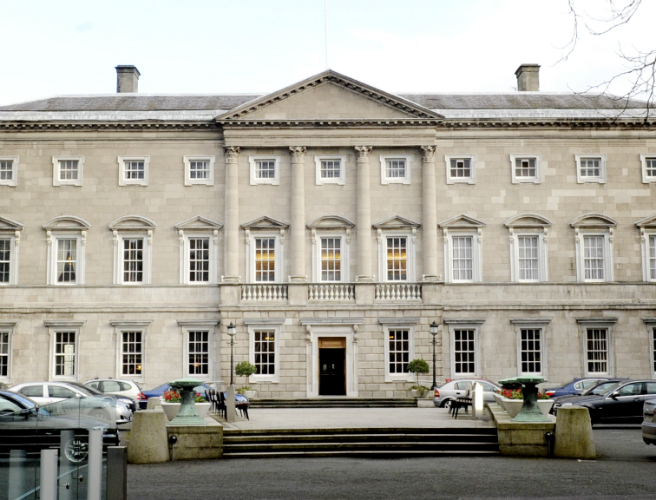
In a massive change from the Oireachtas abortion committee’s recommendations, the Government is now likely to propose a referendum to replace the Eighth amendment, rather than simply repeal it. The replacement text would grant the Oireachtas, not the Courts, sole and exclusive authority in deciding abortion law. It would mean that no portion of the Constitution could be appealed to in order to limit, in any way, legislation passed by the Oireachtas or assert any unborn rights. It was reported Monday that the Government had sought the advice of the Attorney General on the matter, and now, according to sources speaking to the Irish Times, Ministers have been told that the Attorney General is “likely” to recommend replacing article 40.3.3 with a text that would give the Oireachtas the power to make indefeasible law on abortion, impervious to review or challenge by the Courts.
According to sources, there is concern that simply deleting the article would leave open the possibility of legal challenges from both anti-abortion and pro-choice campaigners in the future. Legal challenges could seek to discover additional rights for the unborn in the Constitution or seek wider access to abortion under the right to privacy or bodily autonomy. To avoid this, a provision in the Constitution reserving to the Oireachtas the right to make the law in this area is now likely.
It is also claimed that such a provision may be needed to provide “further reassurance” to voters, and that, that while the legal advice had yet to be finalised, it was likely to recommend a “belt and braces” approach.
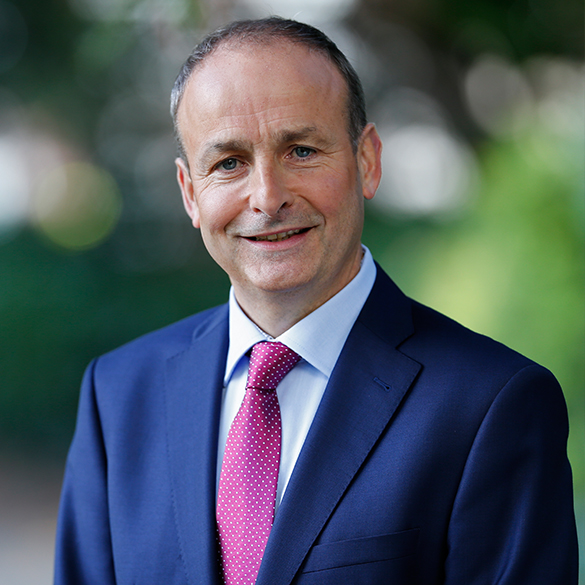
Fianna Fail’s Michael Martin has publicly backed the campaign to repeal the pro-life amendment and legislate for abortion without restriction up to 12 weeks and for mental health reasons up to birth.
Speaking in the Dail yesterday, Mr Martin cited the case of Savita Halappanavar and said in the inquiry into her death “the current law stood indicted for leading to a situation where her care was not as responsive or urgent as it should have been”. He also mentioned other cases “where the law has gone to extreme lengths in the attempt to force women to go to full term with a pregnancy”. Because of cases like this, Mr Martin called for a change in the law: “If we are sincere in our compassion for women and if we are sincere in respecting their choices then we must act. Because the 8th Amendment has been shown to cause real damage to Irishwomen. Because it has caused real harm to the quality of care available to pregnant women at critical moments. Because it has not and cannot change the reality that abortion is a present and permanent part of Irish life.”
Regarding what change the referendum should propose, he said he felt it is “likely” not only that the Eighth amendment be repealed, but that it should be replaced by a text explicitly giving the Oireachtas absolute power to legislate on abortion. Regarding legislation that might follow a referendum, he said he agrees with “the logic and the basic approach proposed by the Committee”.

Citing various events from history, Ms O’Connell said that “Catholic Ireland was a monstrous hoax”.
“When it came to children out of wedlock, the sin of having sex outside marriage was all-encompassing. The products of such sex were seen as the devil’s spawn. As it was women who bore the children, who laboured their births and nursed them at their breasts, it was the women who were unavoidably and visibly the most sinful”, she said. Speaking of the mother and baby homes, and the children who died in their care, she said: “We murdered them in their hundreds through neglect and hate, brutalised them in the name of salvation and enslaved them in the name of redemption”.
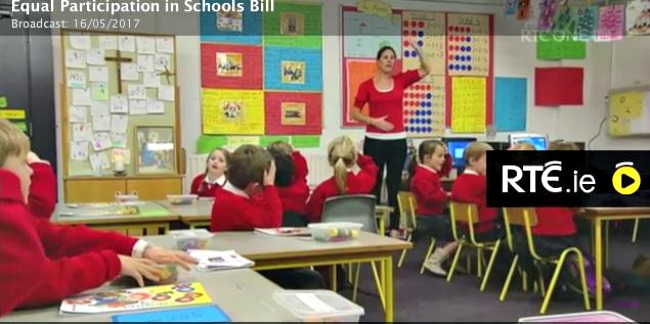
A new survey has found low levels of religious practice among trainee primary teachers. The survey, which was carried out by NUI Galway’s school of education, found that one-third of respondents said they rarely or never practised their religion or attended religious services. While most described themselves as “religious” (58 per cent), the remainder (42 per cent) self-described as either “not religious”, “did not know” or, in a small number of cases, atheist.
Despite this, the vast majority identified as Catholic (90 per cent), a rate higher than the general population at the time (78 per cent). A small minority of respondents (5 per cent) stated they had no religion, which was half the rate of the general population.
The survey examined attitudes towards religion among more than 1,000 teaching entrants and applicants with an anonymous questionnaire in 2014.
On the issue of teaching religion, most respondents said they were strongly in favour of teaching children about all faiths, world views and religions. The researchers found there was much less support for faith-formation-style religious instruction, even among Catholic respondents.
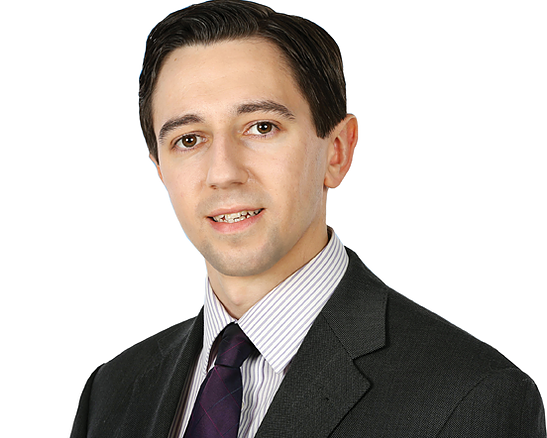
The Pro Life Campaign has described as “deeply divisive and mean-spirited” the Minister for Health’s speech in the Dáil yesterday evening on the recommendations of the Joint Oireachtas Committee on the Eighth Amendment. In his speech Minister Simon Harris talked about a nation turning its back on women as a result of the Eighth Amendment and linked the amendment to “darker times in our history” that included the Magdalene Laundries and Mother and Baby Homes.
Commenting on his remarks, Cora Sherlock of the Pro Life Campaign said: “Minister Harris has chosen to smear an entire group of people as a substitute for real debate. The Eighth Amendment has saved tens of thousands of lives and those responsible for it have every reason to be immensely proud of what they achieved. The people who campaigned for the Eighth Amendment in 1983 did so out of a genuine concern for human rights and respect for the dignity and value of every human life, born and unborn. For the minister to depict those responsible for the Eighth Amendment in the way he did is despicable and wholly unjust. The proponents of the amendment were not just involved in campaigning for its passage, they were also personally involved in different ways in providing care and support to women and families in difficult situations.”
Ms Sherlock added: “Many people involved in the pro-life movement today became involved for very personal reasons. Some are parents who contemplated abortion only to change their minds at the last minute. Others are women who had abortions and now deeply regret the decision. In his speech yesterday evening, Minister Harris also demeaned these individuals and everyone involved in the pro-life movement today. In one breath he called for a calm and reasoned debate and in the next he levelled accusations that demand an immediate retraction and apology.”

The use of frozen sperm, eggs or embryos after a person’s death by their partner will be permitted under draft legislation, the Oireachtas health committee has heard. The State’s chief medical officer Dr Tony Holohan told the committee on Wednesday about the drafting of the forthcoming Assisted Human Reproduction (AHR) Bill. Part of the scheme deals with what is called posthumous assisted reproduction (PAR). This involves the use of frozen gametes or embryos from a deceased person to achieve a pregnancy.
“These provisions enable a surviving female partner to continue a parental project after the death of her partner, provided specific conditions are fulfilled,” Dr Holohan said. “For example, the relevant parties have received counselling and given their informed consent and provided a one-year grieving period has elapsed since the partner’s death.” The deceased person would be recognised as a parent of any child born following PAR provided that child is born within 36 months of the person’s death.


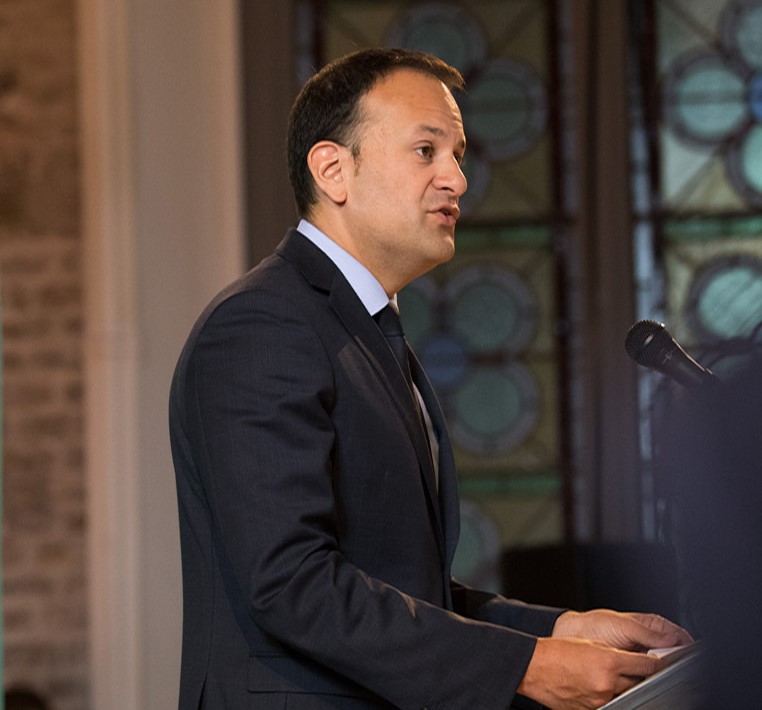
Taoiseach Leo Varadkar has indicated that the Government will accept the recommendations of the Oireachtas committee on the Eighth Amendment. This would pave the way for a referendum to entirely repeal the Eighth amendment to the Constitution recognising the right to life of the unborn child, and enable legislation to be prepared to allow for abortion for any reason up to 12 weeks into a pregnancy, and thereafter up to birth where there is a risk to the ‘mental or physical health’ of the mother. This is more radical than the UK law under which one pregnancy in every five ends in abortion each year. At the opening of a special meeting of the Fine Gael parliamentary party on Monday, Mr Varadkar said the proposals to repeal the Eighth Amendment and allow for abortions up to 12 weeks were a “strong option” for the Government.
According to the Irish Times, however, by the conclusion of the five-hour meeting, the Taoiseach said he believed there was a majority opinion that the Government should not stray too far from the committee’s recommendations. Any departure from the proposals, he said, would require both a very good reason and also the support of the Independent members of the Government.